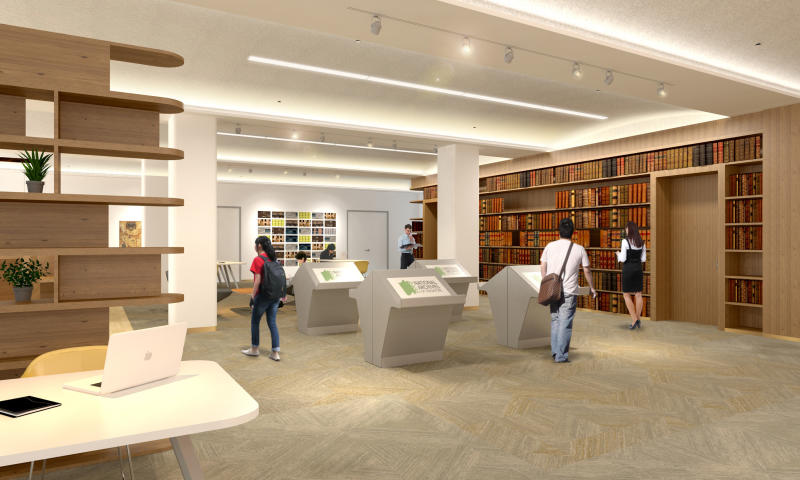Parliament: NLB no longer needs written consent to archive online content with 'historical value'
Sign up now: Get ST's newsletters delivered to your inbox

An artist's impression of the Archives Reading Room in the revamped National Archives of Singapore building. The National Library Board now has the power to collect a wider range of Singapore-related materials in electronic form.
PHOTO: NATIONAL LIBRARY BOARD
SINGAPORE - The National Library Board (NLB) now has the power to collect Singapore-related materials published only in electronic form - including e-books, online magazines and streamed content.
With amendments to the NLB Act passed on Monday (July 9), it will also no longer need to seek written consent from owners of local websites before making copies of online content deemed to be of historical value to Singapore.
This is because it is cumbersome to do so, and only a small percentage of such website owners typically respond to requests, said Minister for Communications and Information S. Iswaran.
He said changes to the NLB Act are needed as there is a growing amount of digital content being produced, with websites in the .sg domain numbering more than 179,000 as of last month and still growing.
"This will ensure that such material remains accessible for reference and research even after an e-magazine is no longer available in any digital repository online, or long after a once-popular website ceases to operate," he added.
Changes passed will also allow for the systematic and timely collection of digital resources, so future generations may understand and appreciate the evolution of society, he said.
Other countries such as Britain, Australia and South Korea have amended legislation to allow their national libraries to collect and preserve electronic materials and websites.
Replying to questions from Mr Ong Teng Koon (Marsiling-Yew Tee GRC) on the scope of the Act, Mr Iswaran said the automated "Web-harvesting" applies only to .sg domain sites - Singapore websites - meaning that material on social media platforms such as Facebook and Instagram will not be archived.
In the case of non-Singapore sites, NLB will also approach site owners for consent before collecting material from them, said Mr Iswaran.
To make clear that NLB is not infringing on any copyright laws while Web-harvesting Singapore sites for material, including online sound recordings and cinematograph films, the Copyright Act will be amended as well, he said.
However, in line with international practice, NLB will not collect material from sites that are password-protected or restricted to subscribers. While most sites will be Web-harvested once a year, exceptions will be made for those which contain content on current affairs and which are read by many citizens, he added.
Replying to questions from Mr Louis Ng (Nee Soon GRC) on the rights of publishers, Mr Iswaran said that even as the Copyright Act will be amended to allow Web-harvested content to be made available on computer terminals in libraries and archives, these places also have safeguards to prevent users from further copying or distributing the work.


